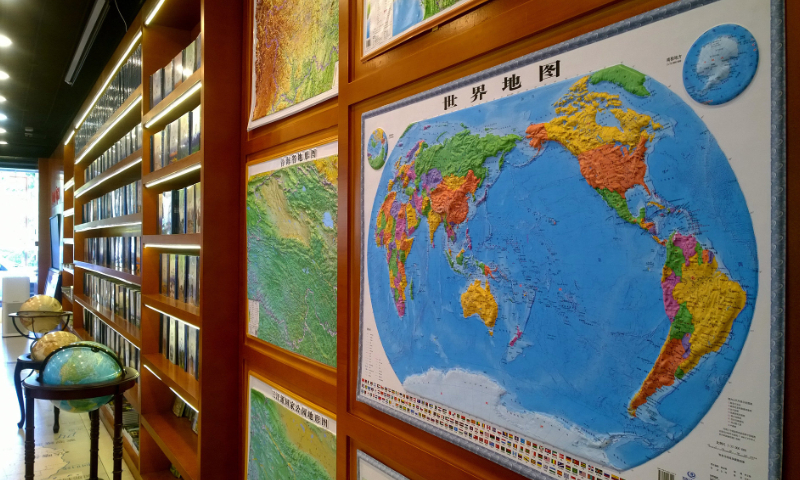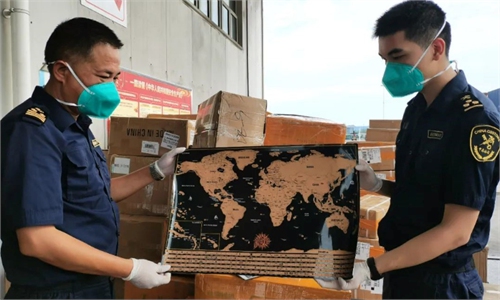
The photo taken on November 27, 2020 shows a map store in Beijing. Photo: VCG
China's natural resources and national security departments have carried out joint law enforcement operations against relevant enterprises and organizations that use "problematic maps" overseas, China Central Television reported on Wednesday.
Some overseas map service providers have used the name of "open source sharing" to induce personnel from the Chinese mainland to carry out illegal mapping activities against important military targets, key infrastructure and other facilities, causing data leakage of some secret geospatial information related to national security, said the report.
When providing internet services, some domestic enterprises neglect the hidden dangers to national security, failing to comply with the map verification procedures based on the law, and directly using "problematic maps" shared by overseas map service providers.
Relevant departments will continue to strengthen law enforcement and supervision of related industries, to ensure that the industry develops in a healthy manner, and to safeguard the security of national geographic information data, according to the report.
The authorities said that a correct national map is a symbol of national sovereignty and territorial integrity. In August, Chongqing Customs officers seized 24 sets of problematic maps suspected of violating the one-China principal.
Various problematic maps that threaten China's sovereignty and territorial integrity have been found during recent years. In South China's Guangxi Zhuang Autonomous Region, a total of 57 "problematic maps" and 22 "problematic map" panels were detected and corrected during the 19th China-ASEAN Expo, according to local authorities in Guangxi on Wednesday.
In April 2021, relevant departments in Shanghai informed Swedish clothing brand H&M about a problematic map on its official website after being informed by netizens, and asked the company to rectify the map.
The authorities have been making efforts to reduce the use of the "problematic maps" during recent years. In South China's Guangdong Province, the public map services have been officially launched in a WeChat applet called Yue Sheng Shi, an administrative mobile service platform, with 571 standard maps online, according to the authorities.
The State Council in 2015 issued a set of new regulations for maps, with the goal of tightening control over maps, safeguarding state sovereignty and boosting development of the geographic information industry.

